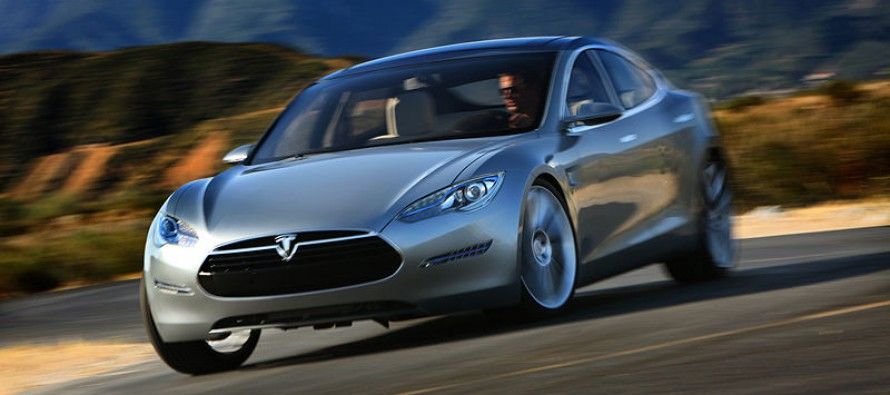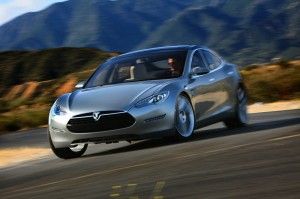Brown fuels incentives for alt-energy cars

 Convinced carbon emissions pose an “existential threat” to the human race, Gov. Jerry Brown just signed a set of bills designed to push ahead an environmental agenda dependent on automobiles that don’t run on gas. Among other new rules, regulations and programs, the new legislation set three changes in motion.
Convinced carbon emissions pose an “existential threat” to the human race, Gov. Jerry Brown just signed a set of bills designed to push ahead an environmental agenda dependent on automobiles that don’t run on gas. Among other new rules, regulations and programs, the new legislation set three changes in motion.
Assembly Bill 2013, by Assemblyman Al Muratsuchi, D-Torrance, expanded the sticker program that authorizes drivers of low-emissions vehicles to use High Occupancy Vehicle lanes regardless of whether they carry any passengers. The bill raised the total number of stickers authorized for DMV issuance from 55,000 to 75,000.
Aware of the symbolic political value of statistics, Gov. Brown has sought to use memorable numbers to capture the environmental imagination of elites and the public alike. That approach was evident in an additional bill signed by Brown, Senate Bill 1275, by state Sen. Kevin de Leon, D-Los Angeles; on Oct. 15 he will become the Senate’s president pro tempore.
It officially set a goal of one million zero- or near-zero emissions vehicles on California roads by 2023. In addition to ordering the California Air Resources Board to create a plan to meet the objective, SB1275 required the board to create new incentives for lower-income residents, who are less likely to purchase or lease alternative energy cars or trucks.
To do that, CARB was tasked to expand California’s electric and hybrid car rebate program. First used in 2010, over 75,000 rebates have gone out to Golden State motorists. As the Los Angeles Times reported, CARB will beef up that program by offering extra credit to qualifying “low-income drivers” who choose an electric vehicle.
Moreover, CARB will oversee the installation of new charging stations in selected low-income residential buildings and bolster car-sharing programs in targeted neighborhoods. “Low-income residents who agree to scrap older, more polluting cars will also get clean-vehicle rebates on top of existing payments for junking smog-producing vehicles,” according to the Times.
Beyond cars
Finally, Brown signed off on legislation using CARB to push alternate fuel use for heavier vehicles. That bill, SB1204, was introduced by state Sen. Ricardo Lara, D-Bell Gardens. Its aim is to subsidize the development, purchase and leasing of zero- and near-zero emission buses and trucks, dramatizing Brown’s vision of an overhauled transportation infrastructure for California.
To do that, however, SB1204 authorized $200 million in cap-and-trade fee revenue to be allocated to various incentives for alternate-fuel buses and trucks. In the recent past, Brown came under fire, even from environmentalists, for diverting cap-and-trade funds to his prized but costly high-speed rail project. Although critics have not rallied against the new allocation of funds, Brown’s rival in this year’s gubernatorial race did not hesitate to jump on the move.
“If he was serious about climate change,” Neel Kashkari told the Sacramento Bee, “he would be taking the cap-and-trade revenue and funding basic research at Stanford, at Berkeley, at Caltech, so we develop cleaner technologies that are also cheaper, and we export them around the world.”
A final mission
With Brown’s tenure in Sacramento coming to an end either this year or in four years, his idiosyncratic but dogged approach to environmental issues has taken on the air of a capstone personal project. At this week’s United Nations summit on climate issues, Brown told world leaders that within six months he planned to set new, lower carbon emissions goals for 2030.
AB32, the Global Warming Solutions Act of 2006, mandated reducing carbon emissions by 25 percent by 2020, just six years away.
Realizing his ambitions, Brown said, will take more ambition and more technology, “and will also require heightened political will.”
Related Articles
CARB draws sharp fire on AB 32 — from the left
David Roberts — a Grist.org journalist who has an easy command of energy issues that makes his NRDC-style environmentalism easier
On Breast Feeding and Housekeeping
Katy Grimes: We all know that the government is infringing on our personal liberties more and more. Legislators just don’t
Oakland violent crimes No. 3 in country
Jan. 13, 2013 By Katy Grimes A tiny blurb tucked away on page A4 of the Sunday Sacramento Bee today,



